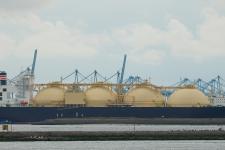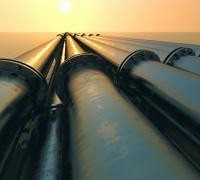European Council Experts' Debrief: Energy

The objective of achieving climate neutrality within just three decades - by 2050, had been previously met with certain resistance and scepticism. Today, the ambitious climate protection targets are additionally coupled with an accelerated deadline for diminishing the EU’s dependence on Russian fossil fuels. Since natural gas was meant to be a bridge fuel cushioning the European low carbon energy transition, the outbreak of war in Ukraine has left the EU in an energy conundrum. Unsurprisingly, this crisis generates intricate policy trade-offs.
The classic energy trilemma, as defined by the World Energy Council, has it that in order to prosper and stay competitive countries need to balance the three core dimensions of energy security, energy equity (accessibility and affordability), and environmental sustainability. In other words, the security of the energy supply has to be weighed against carbon emissions targets and acceptable energy costs. Balancing these dimensions is challenging and involves trade-offs. For instance, in countries of the CEE region, such as Poland and Lithuania, where the issue of energy supply has been securitized for years, investments into costly liquified natural gas (LNG) infrastructure ran against purely economic rationale (as buying piped gas is cheaper) and were justified on security grounds instead. In the EU as a whole, however, energy policy was largely seen through the economic prism, and while sustainability aspect took over center stage, potential security implications of overdependence on Russian fossil fuels were largely overlooked. The current re-adjusting of priorities within this energy triangle and putting more emphasis on the security of energy supply inevitably puts a high strain on the other two dimensions.
First, ensuring adequate supply of non-Russian fossil fuels will come with a hefty price tag. This applies particularly to natural gas, which is not fungible, thereby is harder to diversify than oil or coal are. While the ambitious REPowerEU plan aims at the complete elimination of the EU’s dependence on Russian fossil fuels by 2030, twothirds of Russian gas volumes are set to be replaced by the end of 2022. The task will be challenging due to the high level of EU’s energy import dependency. Although the overall consumption of natural gas in the Union has decreased over the course of the past three decades, the import dependency rose from 52% in 1990 to 84% in 2020. Russian gas amounts to 40% of EU’s current gas imports, which translates into EUR 99 billion worth of yearly transactions. While several strategic gas infrastructure projects that are currently being finalized (e.g., GIPL, Baltic Pipe) will enable access to and distribution of auxiliary gas volumes from Norway, additional investments into gas interconnectors adjoining the more remote regions of the EU and LNG infrastructure are needed.
Although a new LNG ‘game plan’ for the imports from the US to the EU has been just agreed upon by both parties, it is only envisioned to replace an equivalent of 15 bcm of regasified LNG - the volume formerly covered by Russian LNG imports. In other words, this only covers 10.3% of the overall Russian gas imports in 2021. This means that the EU will need to secure additional volumes on the global LNG market, which is constrained by longterm contracts and where the suppliers are running at nearly full capacity. The EU is therefore restricted by the market, and its best option is accessing LNG cargoes intended for other destinations, which also means outbidding the already high market prices.
Second, ensuring the security of supply in the current geopolitical context might not always be easily combined with the climate agenda. Although the ambitious goals of accelerating sustainable energy transition with more widespread use of renewables are promising, infrastructural adjustments take time and, crucially, the renewables’ potential to meet the EU’s heating demand is currently limited. The European heating sector is heavily reliant upon natural gas (and to a lesser extent coal), thereby the drastic cuts in Russian gas imports not only pose technical challenges but also imply increased CO2 emission rates. The reduction of dependency on Russian gas, has already triggered debates over restarting retired coal-fired thermal power plants (e.g., in Germany and Romania) and boosting utilization of the currently active ones (e.g., in Italy). This trade-off comes at a cost of environmental sustainability, at least in the short-term.
Whilst the reality appears to be rather gloomy with multiple challenges ahead, the success of attaining the REPowerEU objectives will be reliant upon policymakers and individual consumers alike. The policymakers will need to make fast investment decisions and provide adequate regulatory framework, as well as ensure that the consumers are able to keep up with their energy bills. The EU has come up with multiple policy responses to mitigate these effects. For instance, the EU Commission proposed a ‘toolbox’ which can be utilized to alleviate the immediate impact of price spikes and boost resilience against future shocks. Other measures such as optimization of electricity market design, Temporary Crisis Framework, EC’s assistance in coordination of gas storage refilling operations are made available too. However, for this strategy to be successful, the dependency on fossil fuels shall be reduced at all levels, including individual, industry, and power systems. The attitude towards energy consumption must also change and the energy usage needs to be curbed as managing energy demand will be as important as diversifying energy supply in tackling this multidimensional issue.
DIIS Eksperter


